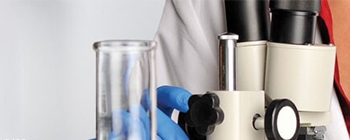Learn More
CCL3 (MIP-1 alpha) Monoclonal Antibody (DNT3CC), PE, eBioscience™, Invitrogen™
Rat Monoclonal Antibody
$183.00 - $470.00
Specifications
| Antigen | CCL3 (MIP-1 alpha) |
|---|---|
| Clone | DNT3CC |
| Concentration | 0.2 mg/mL |
| Applications | Flow Cytometry |
| Classification | Monoclonal |
Description
Description: This DNT3CC monoclonal antibody reacts with mouse CCL3. CCL3, also known as MIP-1 alpha (Macrophage Inflammatory Protein 1 alpha), is a member of the CC- subfamily of chemokines and is most closely related to CCL4, or MIP-1 beta. These proteins play critical roles in the recruitment of leukocytes to the site of inflammation. While both CCL3 and CCL4 will attract monocytes, macrophages, and dendritic cells, CCL3 preferentially attracts CD8+ T cells, while CD4+ T cells are more responsive to CCL4. In addition to its chemotactic functions, CCL3 induces inflammatory cytokine secretion, mast cell degranulation, and NK cell activation. It has also been reported to inhibit hematopoetic stem cell proliferation and may be responsible for the maintece of these cells in a quiescent state. CCL3 signaling is mediated by the G protein-coupled receptors CCR1, CCR4, and CCR5, which are shared with CCL4 and CCL5 (RANTES). Applications Reported: This DNT3CC antibody has been reported for use in intracellular staining followed by flow cytometric analysis. Applications Tested: This DNT3CC antibody has been tested by intracellular staining and flow cytometric analysis of mouse thioglycolate-elicited peritoneal macrophages using the Intracellular Fixation & Permeabilization Buffer Set (cat. 88-8824) and protocol. Please refer to Best Protocols: Protocol A: Two step protocol for (cytoplasmic) intracellular proteins. This can be used at less than or equal to 0.
Both MIP-1alpha and MIP-1beta are structurally and functionally related CC chemokines. They participate in host response to invading bacterial, viral, parasite and fungal pathogens by regulating the trafficking and activation state of selected subgroups of inflammatory cells (e.g. macrophages, lymphocytes and NK cells). While both MIP-1alpha and MIP-1beta exert similar effects on monocytes, their effect on lymphocytes differ; with MIP-1alpha selectively attracting CD8+ lymphocytes, and MIP-1beta selectively attracting CD4+ lymphocytes. Additionally, MIP-1alpha and MIP-1beta have also been shown to be potent chemoattractants for B cells, eosinophils and dendritic cells. Both human and murine MIP-1alpha and MIP-1beta are active on human and murine hematopoietic cells.Specifications
| CCL3 (MIP-1 alpha) | |
| 0.2 mg/mL | |
| Monoclonal | |
| Liquid | |
| RUO | |
| PBS with 0.09% sodium azide; pH 7.2 | |
| AI323804; C-C motif chemokine 3; C-C motif chemokine ligand 3; CCL3; chemokine (C-C motif) ligand 3; G0/G1 switch regulatory protein 19-1; G0S19-1; Heparin-binding chemotaxis protein; H-MIP-1-alpha; L2G25B; LD78ALPHA; LD78-alpha; LD78-alpha(4-69); Macrophage inflammatory protein 1 alpha (Small inducible cytokine A3); macrophage inflammatory protein 1-alpha; macrophage inflammatory protein-1alpha; MIP1 (a); mip1 alpha; MIP-1 alpha; MIP1-(a); MIP1A; MIP-1a; MIP-1alpha; MIP-1-alpha; MIP1-alpha; MIP-1-alpha(4-69); PAT 464.1; RP23-320E6.7; Scya3; SIS-alpha; SIS-beta; small inducible cytokine A3; small inducible cytokine A3 (homologous to mouse Mip-1a); small-inducible cytokine A3; Tonsillar lymphocyte LD78 alpha protein; TY-5 | |
| Ccl3 | |
| Primary | |
| 4° C, store in dark, DO NOT FREEZE! | |
| Ccl3 |
| DNT3CC | |
| Flow Cytometry | |
| PE | |
| Rat | |
| Mouse | |
| P10855 | |
| 20302 | |
| IgG2a κ | |
| Affinity chromatography | |
| Antibody |
For Research Use Only.




